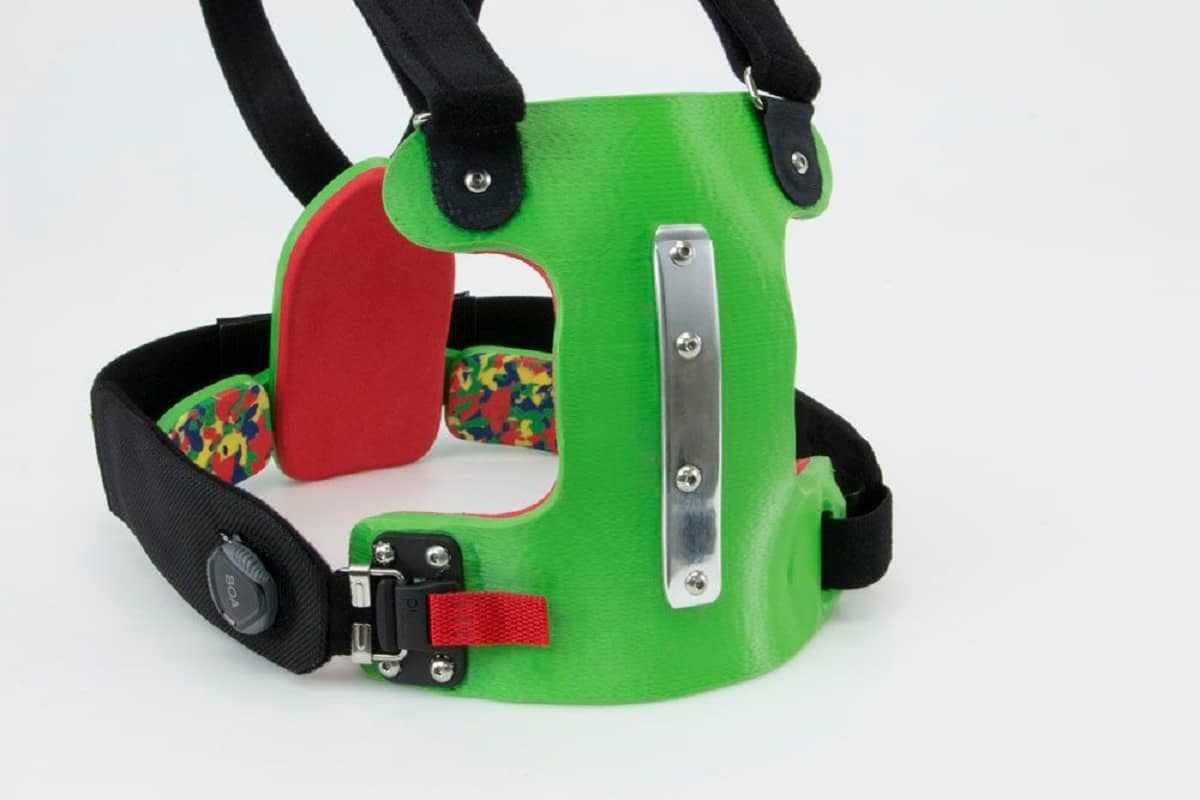What is Pigeon Chest? (AKA Pectus Carinatum)
What is Pectus carinatum?
Pigeon chest, also known as pectus carinatum, occurs when the breastbone protrudes outward from the chest area.
This outward separation of the chest exceeds in a manner that is far more than what is expected.
It is a medical condition found to be most common among children who suffer from an abnormal amount of cartilage growth, resulting in an asymmetrical chest.
This type of abnormality is cause for much concern, and questions have arisen as to the cause and what possible treatments are available. Here we will discuss what a pigeon chest is and how you can care for someone affected.
What Causes Pigeon Chest?
While the root cause of this condition is still debated in the medical community, there are theories. Essentially, it is a cartilage disorder where the rib meets the breastbone and causes a significant and unusual protrusion in the body.
It affects young boys more than girls and is most noticeable around adolescence or once puberty begins. However, it’s also been particularly pronounced right after birth or during the newborn stage.
Some theorized causes include:
- vitamin D deficiency in children
- An open-heart surgery
- Severe and uncontrolled asthma
- Genes (it could be passed on through the family)
What are the symptoms of pigeon chest?
The symptoms of this unusual bodily occurrence vary for each individual. Some issues can be more severe or painful than others, such as pigeon chests.
Issues that can stem from pigeon chests vary from social to physical. Some include:
- Feeling tired, low energy
- Pain in the chest area
- Increased or higher than normal heart rate
- Increased risk of respiratory infections
- Discomfort with appearance (social and psychological impacts)
How Parents Can Care for Pigeon Chest
According to the Royal Children’s Hospital in Melbourne, about 90% of pigeon chest diagnoses happen after 11 years of age.
During puberty, the medical condition becomes more pronounced and occurs in about one in every 1,500 children in the United States. The good news is that it is never too early to start; the earlier, the better.
The older a child’s body deals with this condition, the more difficult it is to treat. A younger body has a much more malleable chest area, allowing for a more successful treatment.
The great news is that pectus carinatum is treatable, and there are ways to help improve the lives of those with this condition.
The first step for any parent who suspects their child’s chest protrudes out and sticks out unusually, which may have pectus carinatum, is to get them assessed by their family doctor.
They will then suggest whether a paediatric surgeon is recommended and refer you to one. A diagnosis is usually done after a full X-ray scan and a check for your child’s lung capacity and functionality.
Take note that at times, pigeon chest can be linked to other medical ailments, and your child would be evaluated for those as well.
Don’t panic, and Keep Your Child Calm
There is certainly no need to worry or stress. According to a study by the National Library of Medicine, pigeon chest affects about two children for every 1,000.
This means that about 100,000 children in the United States are affected annually. Every year, about 0.06% of pigeon chest cases are present in live births.
Keeping your child calm and understanding that help, resources, and effective medical treatments are essential.
Braces
The number-one most effective treatment is a brace. Orthotic braces are the first and most recommended form of treatment for pigeon chest.
Also known as a chest-wall brace, doctors recommend the child wear them for at least 14 to 24 hours daily. A pectus carinatum brace, of course, varies based on the severity and extent of the chest protrusion.
As a corrective non-surgical procedure, positive results are seen before a child’s growth spurt or pre-puberty. The braces can last for several months to attain successful results.
Even after achieving the desired results, braces would often be required, but only overnight, to maintain the improved shape.
According to pediatric surgeon Dr. Stephen Fenton of the University of Utah, nearly all pectus carinatum braces are form-fitting and adjusted for each child’s body and condition.
As he states to concerned parents, “If it fits well, it’s fairly comfortable, and they’re going to be more likely to wear it.”
This treatment should be used diligently and consistently for the best results, and improvements are already seen about six months in.
Surgery
Generally, braces do not fail, and many children achieve desired chest shapes. However, there is an alternative option, which is surgery.
This would include an invasive incision into the chest wall and directly impacting the cartilage growth for partial removal or resectioning.
This is also known as the Ravitch Technique, where delicate incisions are made, and a metal rod is inserted for support during the position of the desired chest shape.
Looking Ahead to the Future of Your Child
How Dakota Brace Solutions Can Help
A great option for a child with Pectus carinatum is the Dakota Brace. These are custom braces that are 3D-printed to fit the child perfectly.
They guarantee an overall great fit for optimum results in the desired chest shape. Here are a few more reasons to choose Dakota Braces:
- They offer top-notch customer service, cars, and experience to answer all your questions and concerns
- The best quality care is guaranteed while offering remote service and communication. (Make sure you have an iPhone X or later available to complete an initial scan.)
- Ability to finance your purchase over 12 months
The Bottom Line
It’s important to know that while pigeon chest affects many families, there is hope and advanced medical treatments are available.
Improvements can be made, and restoring your child’s confidence, comfort, and health is the top priority.
Dakota Brace is a great option for those seeking to care for their child and improve their condition with smart and available care.
Ready to restore your child’s health and confidence? Click here for your free consultation and get $75 off your first order.






















